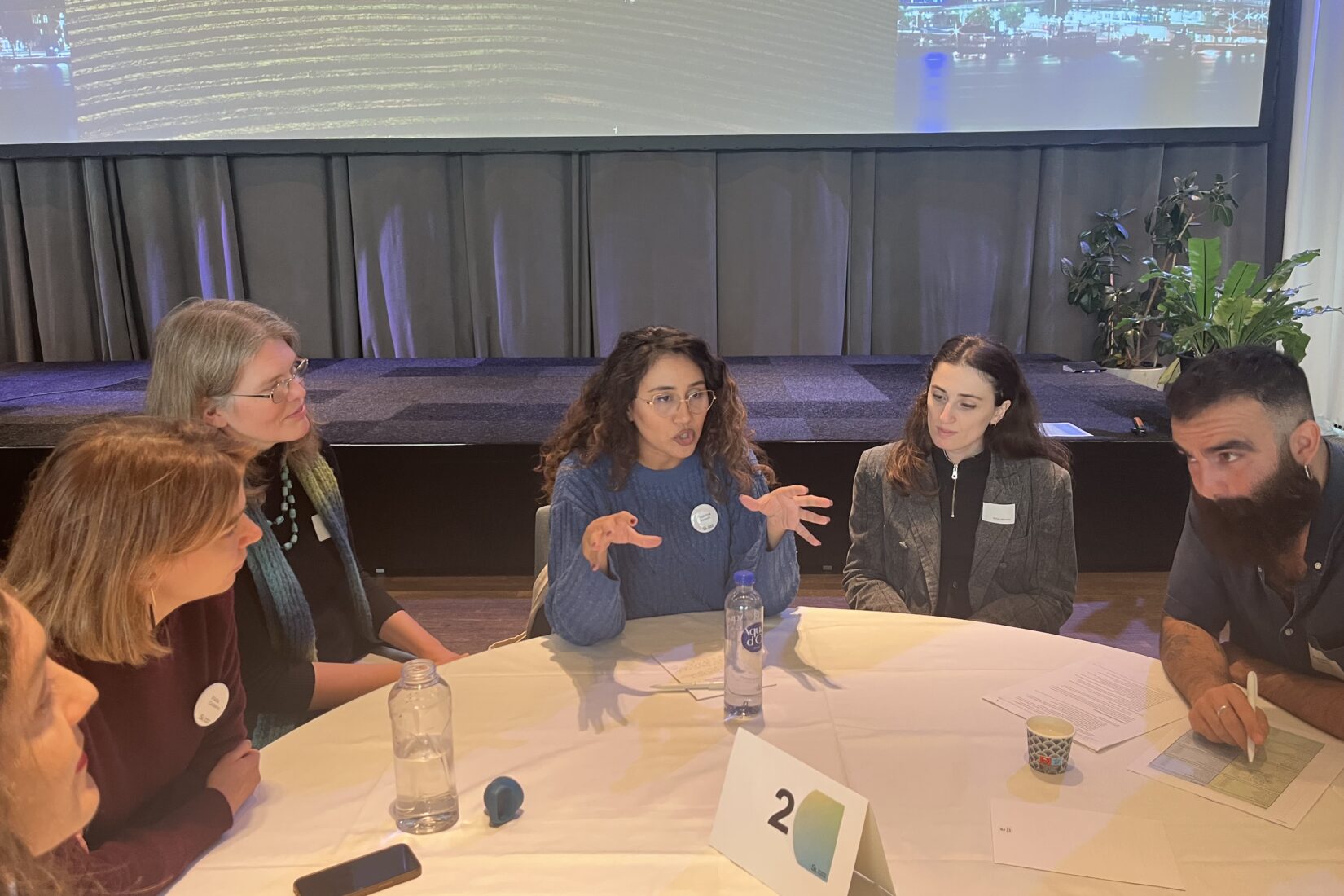The meeting began with a speech by SI’s Director-General, Madeleine Sjöstedt, who shared her background as a civil society leader. She emphasised the importance of civil society for democracy:
– Many civil society organisations are under threat. This is a serious concern. They form the backbone of a free and open society, and when the voices in civil society are silenced, the values of justice are at risk.
A highly regarded workshop
In the afternoon, a workshop took place with around 20 representatives from Swedish civil society. The participants included secretaries-general and other strategically positioned representatives from organisations such as Action Aid, Reporters Without Borders, Intercult, the Swedish Foundation for Human Rights , and Save the Children.
The role of the Swedish representatives was to introduce their organisations and to facilitate a discussion about the challenges and needs of civil society and the role that cooperation and partnerships can play. The purpose of the meeting was to create opportunities for knowledge exchange and new avenues for cooperation between Swedish organisations and the participants’ organisations. In total, around 140 people participated in the meeting.
When the discussions began, the room filled with a hum of conversation. Afterwards, participants shared that they discussed topics ranging from how to survive as an organisation despite the threats facing civil society, to how to build a successful partnership. They also discussed how to balance work and leisure, and how to combat corruption.
Voices from the workshop
Qassam Khidhir Hamad, a participant in this year’s SI Leader Lab, founded the Framing Photojournalism School in Iraq and initiated a project aimed at enhancing the opportunities for female press photographers in the country. He found great value in the networking event:
– During the discussions, I was struck by how similar our challenges are in different countries. I sat with representatives from civil society organisations from Moldova, Jordan, Georgia, and Ukraine and was surprised by how much we had in common in terms of the problems we face, he said.
Tina Sandkvist, Office Manager at the Raoul Wallenberg Academy, appreciated the opportunity for conversation and exchange:
– For us, these types of meetings are incredibly valuable. They provide contacts, inspiration, and opportunities for deepening knowledge about different contexts. They bring us together at a time when many feel that the space for civil society is shrinking.
A creative mingling ended the event
In the evening, a mingling event was organised with 200 guests, where participants in the SI Leader Lab leadership programme had the chance to make new connections with even more representatives from Swedish civil society. During the mingling, guests could participate in a project collecting apple pie recipes (a project aimed at raising awareness of political prisoners in Belarus). They could also engage in the collaborative art project “Weave for Peace,” in support of Ukraine. These elements were done in cooperation with Artten Gallery, founded by Ludmila Christeseva, a participant in this year’s SI Leader Lab. Nesrin Morad, another participant in the SI Leader Lab, expressed the importance of the meeting:
– Meetings like this are invaluable. They create a space for important conversations and potential collaborations that can make a real difference.
SI Leader Lab
SI Leader Lab is a leadership programme for 100 influential civil society leaders whose organisations work for peaceful and inclusive societies in Eastern Europe, the Middle East, and North Africa. The programme focuses on leadership, change management, and advocacy. It is conducted online over approximately seven months and concludes with a one-week meeting in Sweden in October.
